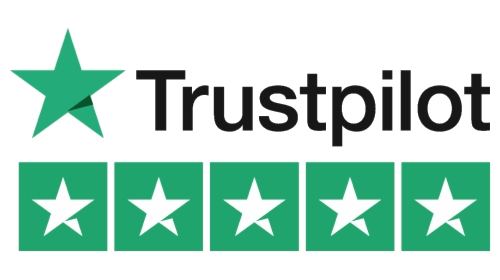- What is a Merchant Cash Advance?
- How Can I Use a Merchant Cash Advance?
- How Do I Pay Back a Merchant Cash Advance?
- How Expensive is a Merchant Cash Advance?
- Do I Qualify for a Merchant Cash Advance?
- Benefits and Drawbacks of a Merchant Cash Advance
- Should My Company Pursue a Merchant Cash Advance?
Even the most prepared business owner will sometimes run into an unexpected expense that requires business funding. Whether it’s a building repair, an opportunity to stock up on discounted inventory, or just pay rent, unexpected costs happen. Merchant cash advances, or MCAs, are funding options available for businesses in need of immediate cash.
Get Funded Now
What is a Merchant Cash Advance?
Simply put, the first thing you need to know about a merchant cash advance is what it isn’t. An MCA is a transaction and not a loan. It’s an important distinction, as it means that MCAs aren’t subject to the same laws and regulations that most small business loans are subject to.
A merchant cash advance works like this: a merchant cash advance provider buys a portion of future credit card sales. It sounds very simple, and in some ways it is. But that small change in the way you look at this form of business financing gives the merchant cash advance its benefits and drawbacks alike.
MCAs are often among the most costly ways to finance any type of business and should be used sparingly and as a last resort.
How Can I Use a Merchant Cash Advance?
Unlike other financing options, merchant cash advances can be used for whatever purpose the small business owner sees fit. While equipment loans must be spent on equipment, and commercial real estate loans must be spent on real estate. That specificity helps protect lenders from financial risk, as they can see that their loan is being used in a way they’ve approved. However, an MCA can be used to buy equipment, pay employees, cover rent, or stock up on inventory.
Because they’re transactions, not loans, MCAs move quickly. You might see your advance hit your business bank account as soon as the same business day you apply. For that reason, MCAs are a good choice when there’s a sudden need for cash. If your company experienced a slow month of revenue and is short on some other obligations, an MCA can be a good choice. Or if a piece of equipment breaks down, leaving no way for you to bring in any cash, an MCA can finance a repair or replacement to keep your company moving forward.
An MCA is not a good choice, however, if you’re looking to make a huge purchase. They can be very expensive, and that price is only exacerbated when the advance gets larger. So try to make sure to use MCAs for smaller, more urgent purchases or payments. As a rule of thumb, an MCA should be a financing option of last resort due to the cost of capital.
Most companies considering a Merchant Cash Advance will use the proceeds from the advance for working capital.
How Do I Pay Back a Merchant Cash Advance?
Repaying an MCA comes primarily from on-going credit card receipts or debit card receipts. In most cases this will be drawn daily or weekly directly from your merchant account as a percentage of sales. That means your company will have reduced cashflow going forward until the advance amounts are repaid.
Another way in which MCAs differ from more traditional types of financing is the way they’re repaid. While a typical term loan requires regular-sized or fixed payments each month, MCAs are paid using what’s called a holdback.
MCAs are an agreement from an MCA provider to purchase a percentage of your company’s future credit card transactions; the holdback is the percentage of each transaction that’s sent to the MCA provider. That percentage comes through each day. So if you’ve got an agreed-upon holdback rate of 16% and your company brings in $3,000, the MCA provider will take $480. If you have a better day and make $7,000, the MCA provider takes $1,120. Fortunately, it works the other way too. A poor day of only $1,000 in sales will require a payment of only $160.
Keep in mind, since your business cash advance repayment amount is pre-determined based on the factor rate, paying it off faster actually increases the the implied annual percentage rate.
MCAs also come with specific repayment terms. Pay an MCA back too early or too late, and you might face heavy fees. It is important to understand all the terms of your business cash advance and your future sales projections. Like most contracts, your agreement may be negotiable and you should carefully match the terms with your expectations of future sales. If there are elements of the agreement that don’t align with your business model, ask for the MCA provider if they will consider modifying the agreement.
If you’re already struggling with cash flow, losing a significant chunk of your daily credit card sales to your MCA provider can create a debt spiral, in which you need additional financing to stay afloat. Bear that in mind as you consider the prospects of an MCA.
How Expensive is a Merchant Cash Advance?
MCAs do not come with an interest rate. Instead, MCA providers make their money using what’s called a factor rate.
Factor rates are typically between 1 and 2. Multiply the advance amount by the factor rate and you’ll find the total amount of money you’ll need to repay. If you receive an advance of $5,000 and a factor rate of 1.4, you’ll need to repay $7,000. If you receive an advance of $12,000 at a factor rate of 1.1, you’ll repay $13,200.
When you convert these rates into an annual percentage rate, or the total interest paid on a sum of money over a full year, the results can be quite high. It’s not unusual to see MCAs with effective APRs in the triple digits.
And paying back your MCA early doesn’t help. In fact, the faster you pay it back, the higher your APR, since repayment ends at a particular number no matter how long it takes. For those reasons, MCAs are one of the most expensive forms of business financing.
Do I Qualify for a Merchant Cash Advance?
The approval process for a business cash advance regarded as one of the simplest and quickest processes for financing. Decisions are based on monthly revenue and sources of sales and receivables. This is one of the financing programs that look almost exclusively at the business operation and not at the personal credit history of the owners. Additionally, it is rare that the business owner will be required to make a personal guarantee for repayment.
Most merchant cash advance companies won’t look at your credit history when it comes to deciding on an advance. Think about it: MCA companies care about your credit card payments and debit card sales, not about whether you paid off a loan three years ago. So, in most cases your financing determination will rarely be contingent on your personal credit score.
Poor credit is typically not a hindrance when it comes to getting an MCA. Instead, slow credit card processing is. If you’ve got a high, regular volume of sales and a projection of future sales, MCA providers will be inclined to work with you.
That’s beneficial to companies with bad credit but also to companies who are in the early stages of growth. A business’s credit card is impacted by its credit history, and new companies don’t have much history by definition. MCAs can provide the funding startups need.
Benefits and Drawbacks of a Merchant Cash Advance
So now that you have a good idea of what merchant cash advances are, what they cost, and how they’re repaid, take a moment to consider all of the benefits and drawbacks that come with this unique form of business financing.
Benefits
Fast. MCAs take no time at all. The application process is fast and easy. Show some bank statements to prove you’ve got a high volume of card sales, and you can have your cash advance in your bank account as soon as the day you apply.
Flexible. MCAs can be used to cover nearly any of your short-term business needs. From buying inventory to hiring to utility repair, MCA money doesn’t require a specific purpose at the time of application.
Available. Your credit score doesn’t matter as much with an MCA as it would with a traditional bank loan. Instead, strong monthly revenue and a projection of future sales indicate to MCA companies that you’ll be able to repay the advance.
Variable payments. Payments on a line of credit or term loan are of a fixed size, made each month. MCAs, on the other hand, don’t have fixed payments. You’ll pay more or less each month depending on your sale volume.
Drawbacks
Cash flow. If you’re already in a tough financial position, it can be a real hindrance to lose an additional 15% or more of your daily income to an MCA repayment.
Expensive. MCAs can have APRs in the triple digits. You won’t benefit from paying them back faster, and the repayment amount won’t change.
Should My Company Pursue a Merchant Cash Advance?
As is the answer to nearly every question in business, it depends. If your company has the cash flow to weather the squeeze that comes from losing a significant portion every day, and you’re in desperate need of financing quickly, MCAs can be a good option. They’re fast, they’re flexible, and very available to the right borrowers.
However, if you’ve got good credit and aren’t pressed for time, other loan options might be a better solution. They’ll offer qualifying borrowers lump sum payments like an MCA, but with longer repayment periods, higher loan amounts, and are less expensive in the long term.






